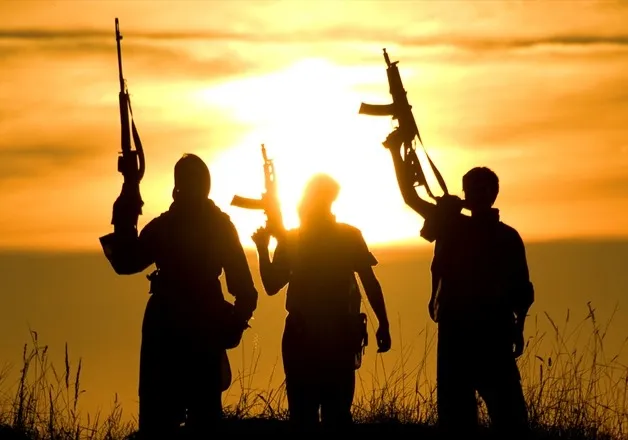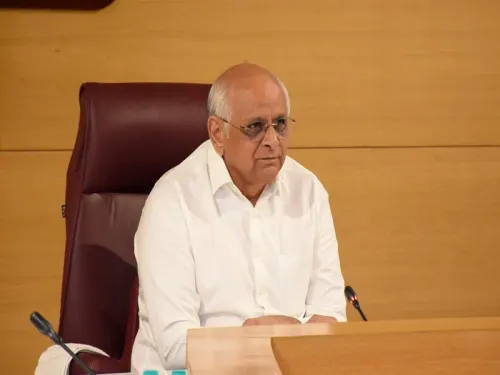Is Pakistan's Terror Trail Only Limited to Kashmir?

Synopsis
Key Takeaways
- Khwaja Asif's admission highlights Pakistan's role in global terrorism.
- The impact of Pakistan's actions extends beyond Kashmir.
- International collaboration is necessary to combat terrorism.
- Evidence shows Pakistan's support for various terror organizations.
- Historical attacks linked to Pakistan underscore the threat it poses.
New Delhi, April 30 (NationPress) The recent confession by Pakistan's Defence Minister Khwaja Asif regarding the nation's involvement in harboring terrorists and facilitating terror operations on its territory has not only shocked many but has also unveiled its audacious terror strategies. These strategies extend far beyond Kashmir, reaching into various regions, including Islamic nations, the Middle East, and even Europe.
The global repercussions of Pakistan’s terror activities were underscored by the Defence Minister's candid remarks about the country's history of supporting terrorist groups, stating, "We have been doing this dirty work for the US for the past three decades, including the West and the UK."
The horrific incident in Kashmir’s Pahalgam is the latest example of terror orchestrated by terrorists based in Pakistan, who are guided by their handlers. A significant connection to Pakistan has also emerged, as Hashim Moosa, a former member of the Pakistan Army, has been identified as a primary attacker in the Baisaran valley. Authorities are currently conducting a major manhunt to apprehend Moosa, a former commando in the Special Services Group of Pakistan who transitioned to Lashkar-e-Taiba (LeT) to carry out terror operations in India.
For decades, Pakistan has utilized its territory as a base for cross-border terrorism, insurgency, and the promotion of extremist ideologies. Its record of sponsoring, sheltering, and exporting terrorism represents one of the most dangerous and destabilizing forces globally.
In 2018, former Prime Minister Nawaz Sharif acknowledged the Pakistani government's involvement in the 2008 Mumbai attacks, which were executed by Lashkar-e-Taiba. Similarly, former Army General Pervez Musharraf admitted that his military trained militant factions to combat India in Kashmir.
Analyzing Pakistan's Global Terrorism Export
Afghanistan: Attacks by the Taliban and Haqqani Network
Pakistan-based terrorist organizations have been implicated as the primary conspirators behind numerous lethal attacks on Afghan civilians, government entities, and international forces, including the 2008 Indian Embassy bombing in Kabul and the 2011 US Embassy attack.
The ISI (Inter-Services Intelligence) of Pakistan has been extensively documented as a supporter of the Afghan Taliban and the Haqqani Network, providing them with essential funding, training, and refuge.
The role of Pakistan's ISI in the Indian Embassy bombing has also been affirmed by senior journalist Carlotta Gall, who noted, "The embassy bombing was no rogue operation by ISI agents acting independently. It was authorized and overseen by senior officials within Pakistani intelligence."
Iran: Attacks by Jaish ul-Adl
Pakistan-based Sunni extremist group Jaish ul-Adl has repeatedly targeted Iranian security forces in the Sistan and Baluchestan province. In retaliation, Iran has executed missile and drone strikes within Pakistan's Balochistan province, aimed at what it claims are Jaish ul-Adl bases.
Iran has consistently accused Pakistan of sheltering and neglecting to take action against the Sunni militants conducting assaults across the border.
Moscow Concert Hall Attack (2024)
In April, a connection to Pakistan emerged during the investigation of a terrorist attack in Moscow. Russian officials identified the mastermind as a Tajik national and are exploring ties to Pakistan, with indications that the attackers may have received logistical or ideological support from Pakistani networks.
United Kingdom: The 2005 London Bombings
The July 7 London bombings, perpetrated by four British Islamist terrorists, drew links to training and indoctrination in Pakistan. Three of the bombers—Mohammad Sidique Khan, Shehzad Tanweer, and Germaine Lindsay—spent time in Pakistan between 2003 and 2005, receiving training at terror camps.
Osama bin Laden’s Capture Exposed Pakistan's Deceit
The 2011 US operation that resulted in the death of Al-Qaeda leader Osama bin Laden in a compound in Abbottabad, Pakistan, unveiled the country's blatant defense of notorious terrorists and highlighted its failures in counterterrorism efforts.
Bin Laden lived undetected for years near a facility associated with Pakistan's Military Academy, confirming the government's protection and alleged complicity.









